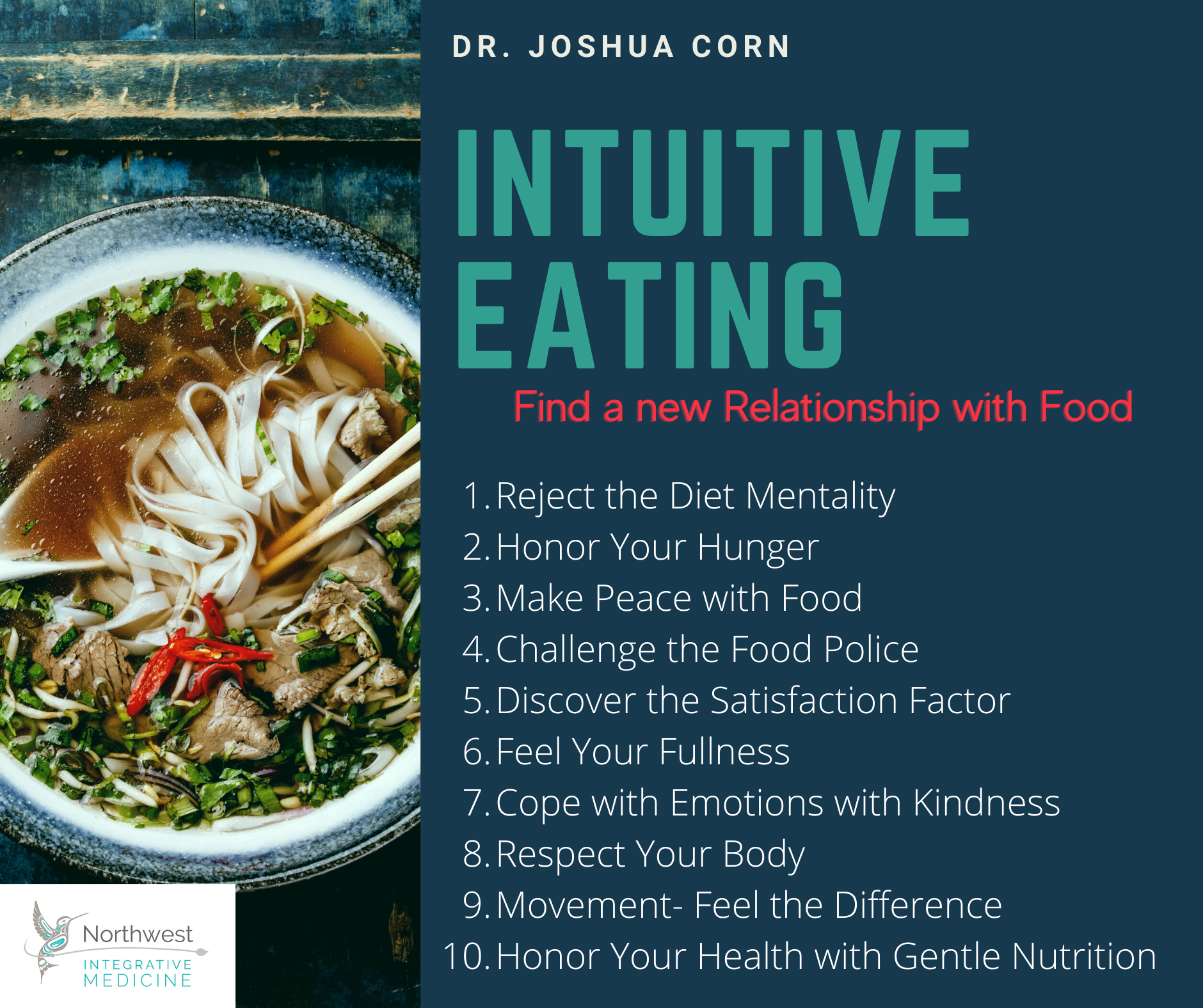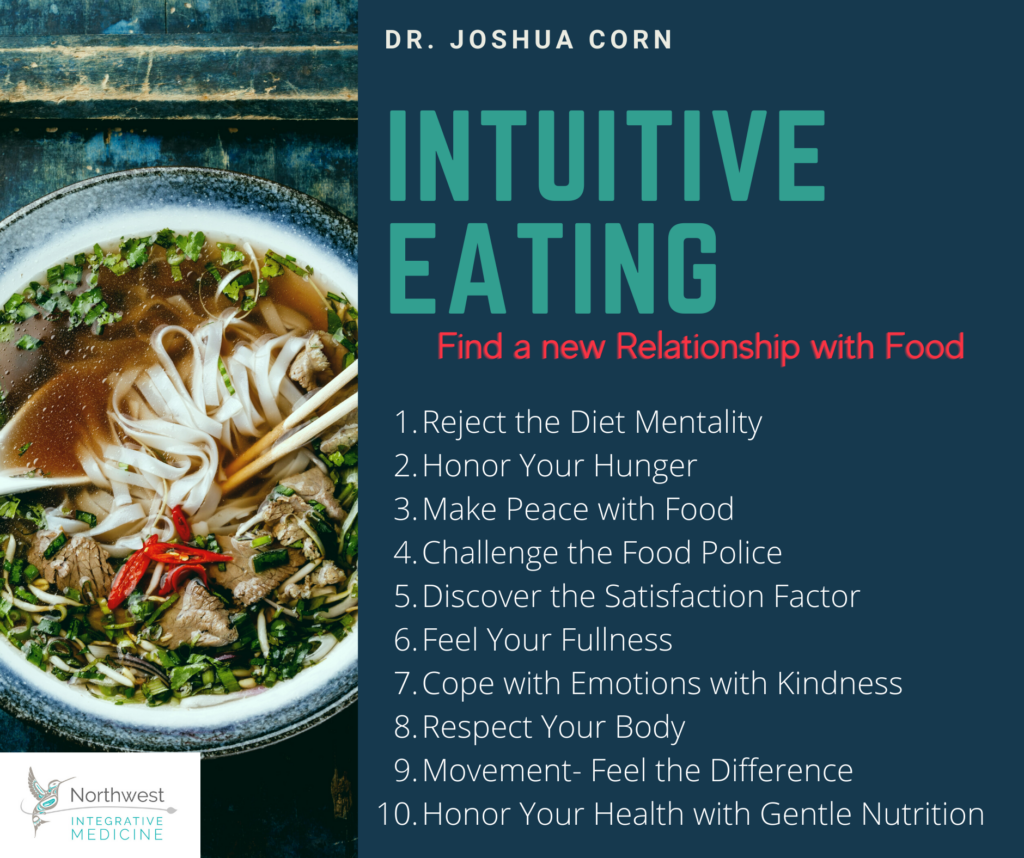Have you heard of Intuitive Eating?
Intuitive Eating was developed by dietitians Evelyn Tribole and Elyse Resch to give people a framework for approaching their relationship with food using logic, emotion, and instinct. This approach is evidence-based and has a ton of research studies supporting its use (seriously, check out https://www.intuitiveeating.org/resources/studies/). At Northwest Integrative Medicine, Dr. Pickworth and Dr. Corn use the principles of intuitive eating when working with patients to help them develop a healthy relationship with food.
The Intuitive Eating framework encourages people to listen to hunger and fullness signals, enjoy foods they want to enjoy, move their bodies, and use gentle nutrition to support their health. This approach removes “good” and “bad” labels from foods, so people can make more rational decisions about what they want to eat based on how they feel after eating certain foods.
Intuitive Eating is NOT a diet; it is an approach designed to help people listen to their bodies, honor their hunger, and remove obstacles to having a healthy relationship with food by challenging thoughts, beliefs, and rules some of us have followed for years. Intuitive Eating follows ten principles:
- Reject the Diet Mentality: stop believing in fad diets, quick weight loss, and unsustainable food restriction. Diet culture is designed to sell products and services, not improve health. Lasting change comes from making peace with your body and healing your relationship with food.
- Honor Your Hunger: keep yourself adequately nourished. Restriction triggers cravings, excessive hunger, and throws any attempts to moderate food intake out the window.
- Make Peace with Food: remove the “good” and “bad” labels from the foods you eat and give yourself permission to eat all foods.
- Challenge the Food Police: stop monitoring and categorizing everything you eat as a way to determine your self-worth.
- Discover the Satisfaction Factor: learn to appreciate and enjoy food as a pleasurable experience. Enjoying our food, instead of worrying about it, can help us feel more satisfied and content.
- Feel Your Fullness: learn to listen to your body’s signals about hunger and fullness. Pause during meals to check in with yourself about your hunger and fullness levels.
- Cope with Emotions with Kindness: recognize your triggers for emotional eating and find new ways to comfort, nurture, and soothe yourself.
- Respect Your Body: all bodies deserve dignity and respect. Learning to respect our bodies, instead of holding unrealistic expectations for them, can help us heal.
- Movement – Feel the Difference: move your body in a way that you enjoy. Exercise to celebrate what your body can do and how it makes you feel, not to punish yourself for food choices.
- Honor Your Health with Gentle Nutrition: make food choices that honor your health. Remember that our habits determine our health, and you will not become unhealthy after one meal or snack.
Intuitive Eating has been a game changer for how I approach discussing nutrition with my patients. This approach allows people to enjoy foods they want to enjoy while still supporting their bodies with healthy nutritional choices. We have seen this approach work wonders for many of my patients who have struggled with dieting, food shame, and internalized judgement around food choices.
If you’re interested in learning more about Intuitive Eating, body positive medicine, or weight-neutral nutritional counseling, schedule a time to talk with Dr. Pickworth or Dr. Corn. You can also check out Dr. Pickworth’s recent video on Intuitive Eating and our recent blog post on Why the BMI is Bunk.
If you want to learn more about Intuitive Eating from the source, check out the latest edition of Intuitive Eating: A Revolutionary Anti-Diet Approach. You can also find tons of resources on https://www.intuitiveeating.org/.
References:
10 Principles of Intuitive Eating. Intuitive Eating. https://www.intuitiveeating.org/10-principles-of-intuitive-eating/. Published December 19, 2019. Accessed January 13, 2021.


